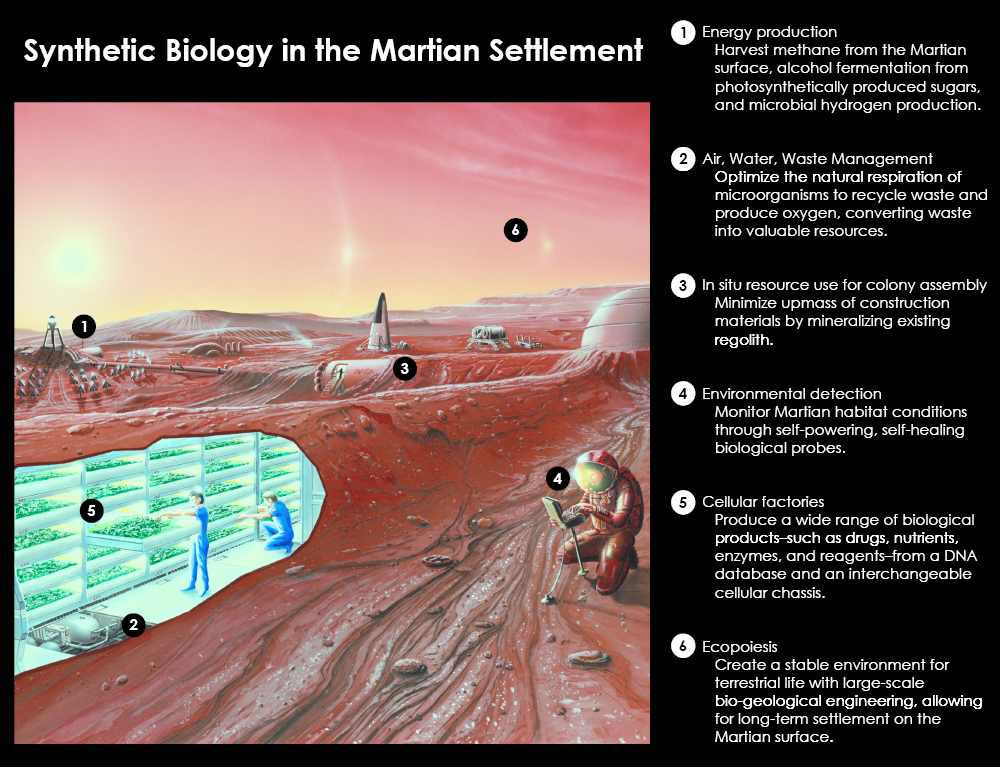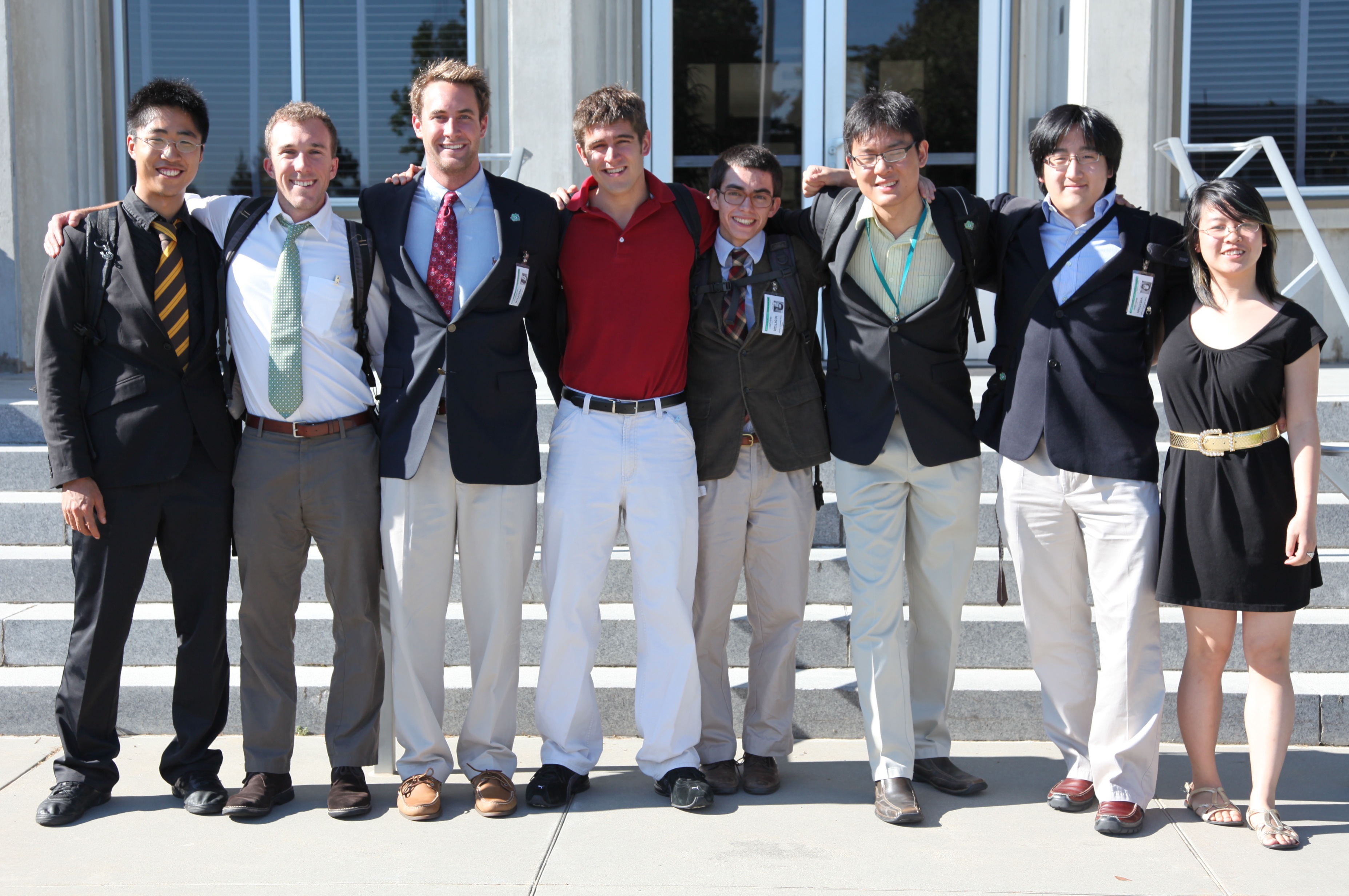Team:Brown-Stanford
From 2011.igem.org
Synthetic Biology for Space Exploration
One of the major challenges of space exploration is the limited payload mass that can be launched on a rocket and the difficulty of resupply mid-mission. Any long term settlement will require more resources than astronauts can initially bring with them. Synthetic Biology has the potential to revolutionize space exploration and settlement. Biological tools have a major advantage over classical tools: the ability to self-replicate and regenerate.
The emerging field of Synthetic Biology will allow us to engineer microbial factories that will largely circumvent the limiting payload factors. These cellular factories will generate fuel, food, medicines and building materials for settlers, but will consist of engineered cells that could be stored in a single test tube, and regrown to production scale on-site, as needed.
The Brown-Stanford iGEM team is excited to work on three different projects, under the common theme of developing Synthetic Biology applications for space:
RegoBricks:Any extra-terrestrial settlement will require a habitat to keep its occupants alive, but transport of such a habitat will require a huge amount of payload space. RegoBricks uses bacteria to cement Martian and Lunar regolith (soil) simulant into durable building blocks, similar to concrete bricks. Future extraterrestrial settlements will be able to use such a process to build structures using resources readily available in the environment, instead of having to transport those materials from Earth. |
PowerCellAll biological tools need energy to run. PowerCell develops a universal energy source. Engineered photosynthetic bacteria generate carbon and nitrogenous nutrients from sunlight and air and secrete them to power biological tools, . These tools will transform the raw materials into fuel, building materials, food, drugs, and other products useful to settlers. |
BioSensorBiological interfaces cannot pass information to their users as fast as electronic ones can. BioSensor develops a novel method of fast-acting biological reporting with changes in cell fluorescence. Bacteria could be used to detect toxic chemicals in the environment, for example, or inform astronauts that their microbial tools are unhealthy. |
Martian Colony
News
August 4th, 2011
June 7th, 2011
 "
"







